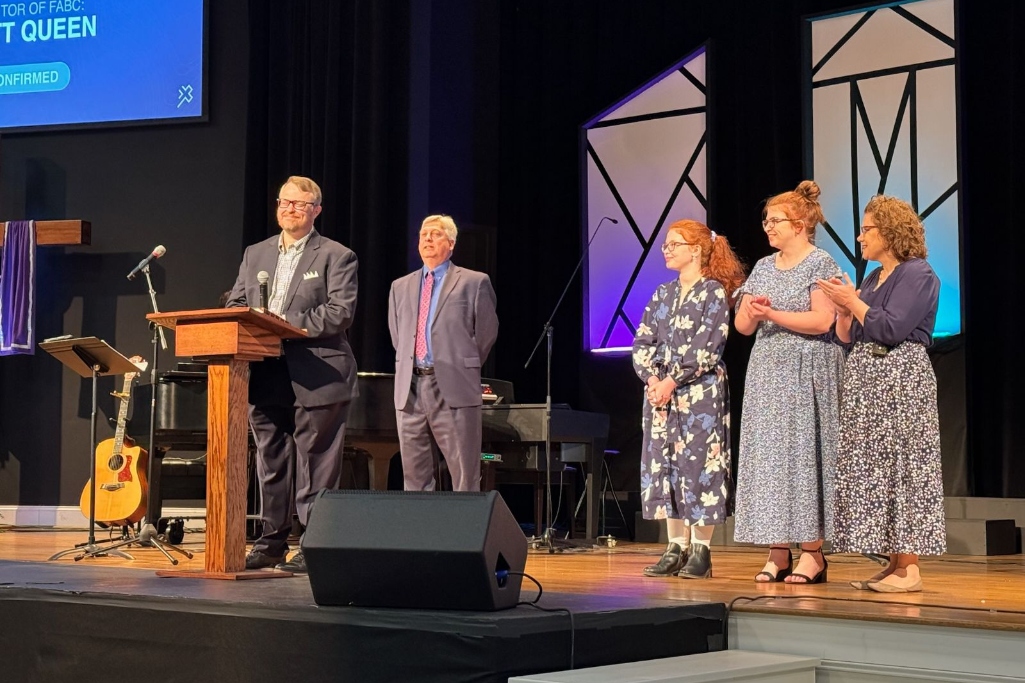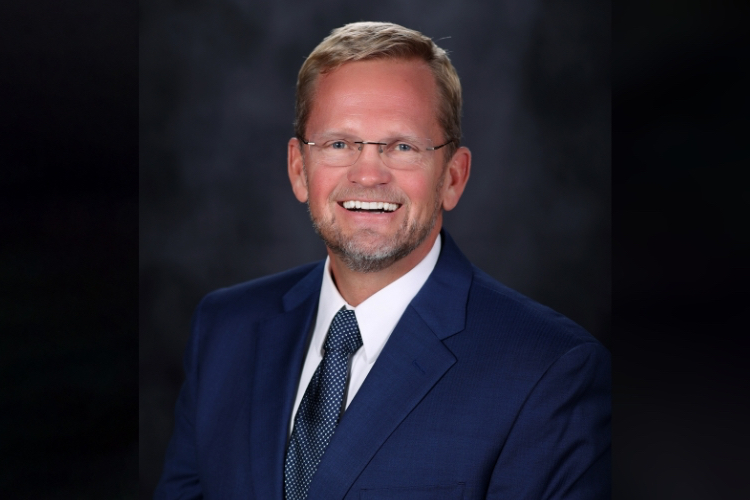
Matt Queen to pastor Friendly Avenue in North Carolina
By Baptist Press Staff
GREENSBORO, N.C. (BP) — Former Southwestern Baptist Theological Seminary (SWBTS) evangelism professor Matt Queen will be making the move from Texas back to his home state of North Carolina to pastor Friendly Avenue Baptist Church in Greensboro, he announced Sunday (Feb. 25). Queen served on staff at the church before his move to SWBTS in 2010.
Queen previously occupied the L.R. Scarborough Chair of Evangelism at SWBTS (also known as the “Chair of Fire”).
Queen became burdened for personal evangelism while a student at Southeastern Baptist Theological Seminary in North Carolina in the late 1990s.
“As students we actually went out and we mapped every house within a five-mile radius of campus,” Queen recounted in a 2022 interview with Southeastern. “Then we went out every Friday night and shared the gospel and tried to connect people to local churches. The more time I spent with Jesus, the more time I wanted to spend telling others about Jesus. So, we did that every Friday night, and when I did it once a week, it became easier for me to do it.”

After moving to Southwestern, Queen honed his evangelism skills and philosophy, becoming a regular commentator on evangelism in Southern Baptist Convention (SBC) life.
In an interview with Baptist Press last year, Queen talked about overcoming the fear of evangelism many Christians have and offered tips for finding in-roads in conversations to bring up the gospel.
“Our success in evangelism is in our obedience,” he said. “It’s actually in doing it.”
In a post on X regarding his call back to Friendly Avenue, Queen reflected on his time at SWBTS.
“Almost 14 yrs ago, Hope and I followed the Lord when I transitioned from pastoral ministry at @friendlyavebap to serve Him in Texas at Southwestern Seminary. Those years included some of the best days of our lives during which some of our most cherished friendships were forged …,” he wrote.
“The Queens praise God for our time in Texas and the friendships that will endure as we return to North Carolina to serve Him and the people of FABC in this next season.”
Digital Engagement takes gospel to unreached corners of Central Asia
By Sue Sprenkle
Technology has come a long way since Dave and Amy Knotts placed their first advertisement on social media seven years ago. The International Mission Board (IMB) missionaries laughed at their first ad’s simplicity – a black screen with white text asking, “Do you want to read the Bible in your language?”
It might have been basic, but there was no arguing about its effectiveness. Within 24 hours, there were 2,500 downloads of a PDF in their language-specific Scripture. This response quickly spurred the missionary couple to delve deeper into digital engagement strategies that can take the gospel to some of the least reached peoples in Central Asia.
The couple’s team figures out what type of medium (or media) people use to communicate and gather information – like what social media platform people use or do people read or watch videos more. Then, they create avenues and content to not only spur Gospel conversations but also train church planters in remote places.
“With digital engagement, we are able to reach into places we can’t normally go,” Dave said, explaining that many people groups considered unengaged and unreached live in either isolated locations or in countries where Christianity is banned. Social media and other digital avenues can still reach these places, even if under government or cultural restrictions.
By using digital technologies, missionaries can pinpoint a specific audience, such as women who attended a henna convention in a particular city, and share a specific message with them via social media, streaming services or Virtual Private Networks (VPNs). Amy explained many of these women might be from a Muslim culture where it’s common for them to be shamed. In this instance, video advertisements from the Knotts’ teams conveyed the message: “Do you have shame? God sees you and wants to walk with you.” Each ad allows the audience to comment or click a button to go to a website with more resources.
“For the most part, people feel safe within the digital world. Most of us will text instead of call. You can hide behind a screen name,” Amy said. “We try to make it a safe and anonymous space.”
When one of the women hits the response button or comments, a team of responders are prepared to engage in gospel conversations in their specific language. The responders might live in the same city or even a different country, but all are believers who speak the language and understand the religions and cultures. The goals of interaction vary depending on the emphasis of the different projects. It can range from Gospel conversations to discipleship. Some of the digital engagements go from the “broad seed” sowing type of blast to meeting in person and becoming involved in a local faith community.
As digital engagement strategies keep up with current technology, the Knotts ask you to pray for their latest project to find effective content for women in Central Asia. They want them to understand they are “seen by God.” They also ask you to pray for people to join their team — whether as a volunteer or missionary. They need people with digital skills like computer programmers, graphic designers and artificial intelligence engineers.
Some names may have been changed due to security.


